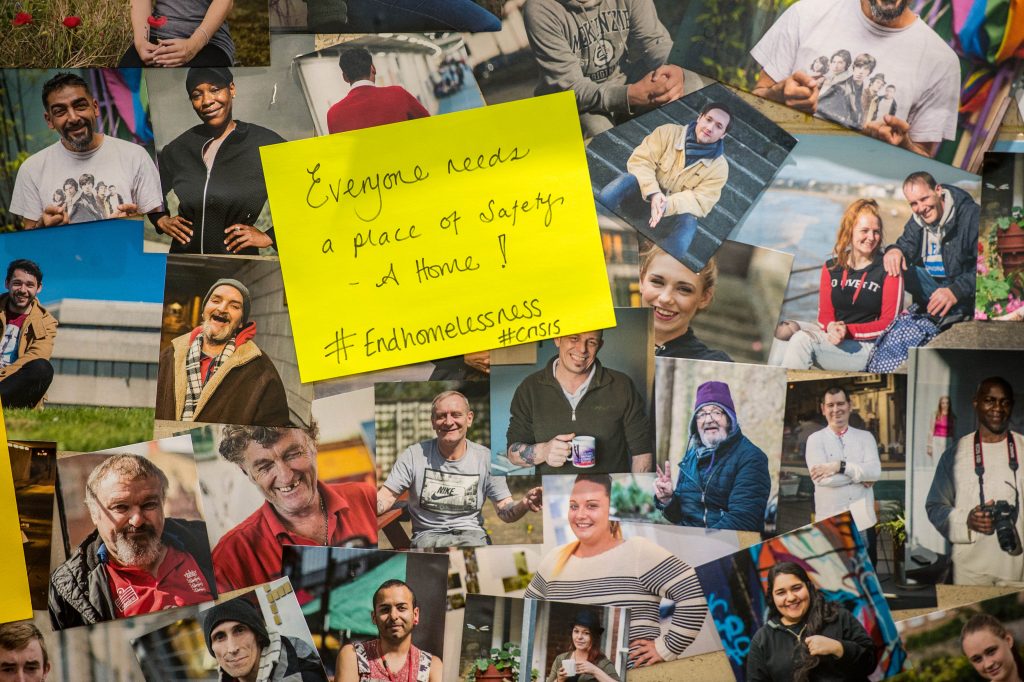The white paper on ending homelessness can set Wales in a world-leading direction, says Suzanne Fitzpatrick.
 Every new year brings with it the hope of positive change.
Every new year brings with it the hope of positive change.
As the number of households seeking homelessness support from councils across Wales surpassed 12,500 last year, there’s a strong need for this hope across the homelessness sector in Wales.
I’m proud to have spent much of 2023 chairing an Expert Review Panel tasked with looking at how legislative change could help to end homelessness in Wales.
While changing the law is just one part of the wider solution to ending homelessness; it is nonetheless a very important part of the solution. Of course, we must look at addressing significant gaps in housing supply so that, across Wales, we have adequate housing to offer those who need it. And, equally, in these extremely difficult economic times, we must look to support our homelessness services to deliver. But, if we are to truly end homelessness in the longer term, it is also essential that the law sets out an appropriate direction of travel. And this was the area that the panel was convened to focus on.
The Expert Review Panel presented a grand total of 171 recommendations to the Welsh Government in its report. Some of these recommendations represented calls for significant systemic shifts, while others suggest smaller-scale changes to support improved ways of working.
I was delighted to see that the white paper, which outlines the Government’s own plans for legal change, was very largely reflective of the panel recommendations. It represents a significant step forward towards making homelessness rare, brief and unrepeated.
About the Panel
Convened and co-ordinated by homelessness charity Crisis, the Expert Review Panel was invited by the minister Julie James to consider how legislative change could help to end homelessness in Wales.
Panel members included experts from across the sector including members from the third sector, local authorities, housing associations, and academia.
Throughout the year, the panel held extensive discussions, reviewing research and evidence and consulting on existing legal structures. I am particularly grateful to the more than 300 people with lived experience of homelessness in Wales who so generously and candidly shared their views with the panel (with thanks to Cymorth Cymru for leading this work). In addition, the panel reached out widely to consult with professionals within the housing sector and beyond.
There was a consensus among people with lived experience, as well as professionals across all sectors, that the current systems are not working as they should. It was clear to the panel that people are seeking help from systems which are not designed to recognise and respond to their needs, with particular barriers for groups at heightened risk of homelessness. Crucially, it was apparent that there was a shared appetite for addressing these issues.
Throughout their discussions, the panel worked hard to construct a package of recommendations to achieve this shared goal, while recognising the differing concerns and views across the various relevant sectors. There was give and take from each of the panel members in order to reach consensus on a cohesive set of reforms. It was an intense and inclusive process resulting in a set of recommendations that are designed both with ending homelessness at its heart and with the future in mind.

White paper
To mark World Homeless Day on 10 October 2023, the Welsh Government published proposals for legislative change in the form of its white paper on ending homelessness in Wales.
While some of the finer detail needs to be worked on, it is great to see the significant changes that the panel envisaged within the Welsh Government’s blueprint.
These are changes that would see a more person-centred and trauma-informed approach to homelessness support. They focus on how we can ensure homelessness is prevented at a much earlier stage, by extending prevention duties beyond 56 days to six months and by drawing wider public sector bodies into duties to identify, refer and co-operate with housing services where a person is at risk of homelessness.
They look to create a Wales where support is more inclusive and responsive to people’s needs, and where there are specific protections in place for groups that we know are particularly at risk of homelessness or falling through the cracks in our services. This includes, for example, people in the LGBTQ+ community, people who are leaving or who have previously been in care, and prison leavers.
These changes would see systems for allocating social housing flexed to offer greater support while homelessness and temporary accommodation services are under strain, but also acknowledge that social housing allocations have to accommodate other groups in housing need as well.
The proposed reforms look to move away from the outdated ‘priority need’ rationing model which served to exclude most single homeless people from material support. They seek a Wales where accommodation is more suitable for people’s needs, while also being aware and agile to the current context, recognising that it will take time for supply to build up to meet demand. They look at how changes to the law can match these ambitions, while also allowing for the time needed for local authorities to establish the foundations needed for this shift in direction.
Of course, there are some ‘spot the differences’ between the recommendations of the panel and the white paper. For example, the panel’s recommendation for landlords to be required to notify a local authority when seeking a possession order has not made it into the white paper. Meanwhile, other recommendations have been reflected in the white paper but with some differences, such as a new duty to support people who have moved on from homelessness to retain accommodation. While the panel recommended that local authorities should regularly review whether a person still requires support to retain accommodation, the white paper curtails the duty at 12 months.
Similarly, the panel recommendation for a case co-ordination approach where multiple services are supporting a person is reflected in the white paper, but would be triggered where a person is working with three or more services as opposed to the two or more services outlined by the panel. It will be interesting to see how these differences develop.
Overall, I am very reassured and excited about the potential for change given that so much of the package carefully constructed by the panel is reflected in the white paper.
What next?
I am immensely proud of the work undertaken by the panel over the last year. 2023 has been a milestone year in the journey towards ending homelessness in Wales. But the journey does not end there – and there is a long road yet to be travelled. The panel paper, and indeed the white paper, are really just the start of crucial legislative change.
It is imperative that as the consultation on the white paper draws to a close and legislation starts to move through the scrutiny of the Welsh Parliament, the sector continues to engage positively in this process, contributing to and shaping these reforms for a better future.
We know that, right now, there are unprecedented difficulties with budgets, supply and resource. Those working on the frontlines are facing struggles every day to deliver services and support within this incredibly difficult climate. As we move into 2024, it is important that we continue to look at addressing these issues.
But this is also a chance to make long-lasting change and set Wales in a world-leading direction. In times of significant financial constraint, it can be difficult to shape ambitious and future change. But we owe it to the 12,500 people experiencing homelessness in Wales, and to the hundreds of people who voiced their concerns that the law is not effective in supporting those who need it most, to grasp this opportunity for positive legislative amendment.
It is imperative that we do not let current constraints hold back our long-term and fundamental ambition for ending homelessness. Let’s continue to engage with the White Paper as it is further shaped and moulded into tangible changes inked into our legislative frameworks. I am optimistic that together we can secure the future we all want and need – a future where homelessness in Wales truly is rare, brief and unrepeated.
Find out more
You can find out more about the work of the panel at Wales Expert Review Panel (crisis.org.uk)
Professor Suzanne Fitzpatrick is director of I-SPHERE (Institute for Social Policy, Housing, Equalities Research) at Heriot-Watt University and is an internationally leading scholar on homelessness. Professor Fitzpatrick has been researching homelessness across Great Britain for many years, including the Welsh Homelessness Monitor.